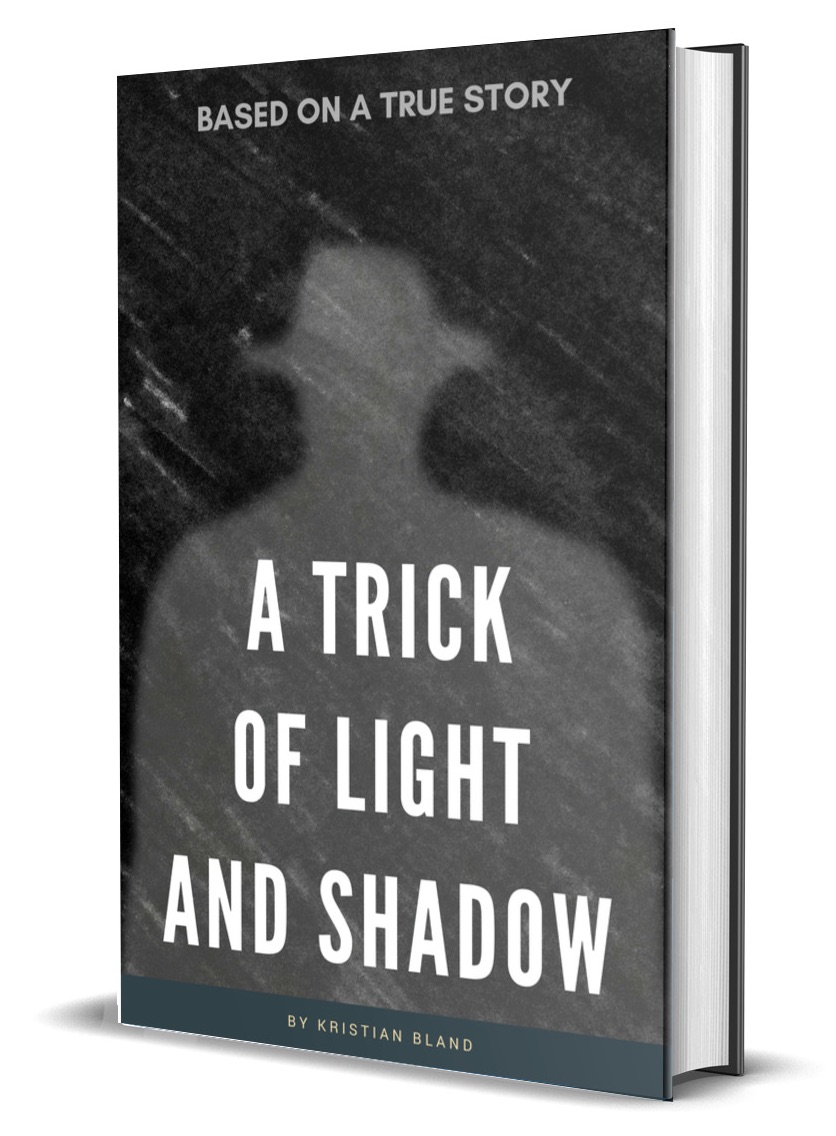Posted on April 22, 2009
Flame Retardant?
 On the advice of a friend, I watched “Fireproof” a second time. This time around, I enabled the commentary track and sat back in my big, comfy chair for one hundred and twenty-two minutes of insight into Mike Seaver’s marital wisdom. I came away from it with my perspective slightly changed, and slightly strengthened at the same time. Go figure.
On the advice of a friend, I watched “Fireproof” a second time. This time around, I enabled the commentary track and sat back in my big, comfy chair for one hundred and twenty-two minutes of insight into Mike Seaver’s marital wisdom. I came away from it with my perspective slightly changed, and slightly strengthened at the same time. Go figure.
The writers do their best to explain that the focus of the movie was on the idea that one partner in a relationship can change its outcome, if only they give themselves to God and commit to repairing whatever it is that has gone wrong. Seeing as the movie is evangelical in nature, I could almost overlook the misogyny as the by-product of clunky storytelling to achieve the ultimate end of bringing the Lord’s message to the movie’s audience. However, since the overt goal of the film is to guide people who find themselves in a strained marriage, the one-sided nature of the narrative sticks out a little too much to be coincidental.
 But you know, if that’s the message that the Sherwood Baptist Church wanted to get out, then more power to them. If it’s their firm belief that the man is the “decider” in a relationship, then I think they’ve done an excellent job in communicating that through “Fireproof”. And, since most of its audience is made up of people with the same worldview, then it’s exactly what they want to see, which goes a long way towards explaining its great success. I think the Kendrick brothers and the volunteers of Sherwood Baptist should be congratulated for not only having had the commitment and the drive to shoot a feature film, (“Fireproof” is actually their third feature), but to have created one that has not only been as commercially successful as “Fireproof” has been, but which has touched as many lives as I suspect this film has.
But you know, if that’s the message that the Sherwood Baptist Church wanted to get out, then more power to them. If it’s their firm belief that the man is the “decider” in a relationship, then I think they’ve done an excellent job in communicating that through “Fireproof”. And, since most of its audience is made up of people with the same worldview, then it’s exactly what they want to see, which goes a long way towards explaining its great success. I think the Kendrick brothers and the volunteers of Sherwood Baptist should be congratulated for not only having had the commitment and the drive to shoot a feature film, (“Fireproof” is actually their third feature), but to have created one that has not only been as commercially successful as “Fireproof” has been, but which has touched as many lives as I suspect this film has.
As someone who has been through a disintegrating marriage, however, I found that viewing “Fireproof” left me with some conflicting emotions. Without knowing of the film’s “Love Dare,” I played the role of Kirk Cameron in my own little story of matrimonial woes as I set about trying to save my own marriage. However, my wife never came around to appreciating my efforts, and instead reacted to them with resentment and anger, because by doing these things, I was making her feel guilty. (Of course, guilt is a hard emotion to shake when you are, in fact, guilty.) Being unable to reconcile with a partner who had no interest in keeping her legs closed for outside business, I find the film’s ultimate message for someone like me to be rather negative and off-putting.
 You see, the one thing I didn’t do that Kirk Cameron’s Caleb Holt does in “Fireproof” is surrender myself to God and patiently wait for the wife to come around. The film makes it abundantly clear, especially after listening to the commentary, that this act of Faith was what really saved Caleb and Catherine’s marriage, and the changes in Caleb’s character were a result of his conversion. I’m sorry, but I just don’t buy it. I can’t, because there is an inescapable cognitive dissonance that comes with this belief that I find detestable.
You see, the one thing I didn’t do that Kirk Cameron’s Caleb Holt does in “Fireproof” is surrender myself to God and patiently wait for the wife to come around. The film makes it abundantly clear, especially after listening to the commentary, that this act of Faith was what really saved Caleb and Catherine’s marriage, and the changes in Caleb’s character were a result of his conversion. I’m sorry, but I just don’t buy it. I can’t, because there is an inescapable cognitive dissonance that comes with this belief that I find detestable.
If God has a plan for each of us, and if everything happens for a reason – then personal accountability is removed from the equations of our lives, and the adulterous wife or husband can just whisper this little cliche into their own ears to help justify the miserable states their betrayal-filled lives eventually take them to, and – somehow – they can still feel like they’re good people. However, since the Church also makes it clear that we have free will, and therefore are in control of our own actions, then they’d have to realize, at least on some level, that they’re only fooling themselves. (Unfortunately, the sort of person I’m talking about excels at fooling not only themselves, but everyone around them.) Anyway, I have never been able to resolve the paradox that results from opposite answers to the same questions. Either we’re all part of God’s plan, and we’re just acting out our tiny parts in His cosmic game of The Sims, or we make our own way in the world, and live or die by our own actions. Obviously, I’ve never been very good with Faith.
Take prayer, for example. I find the whole concept bewildering, because if you subscribe to the beliefs of the Church, then you should realize that prayer is a futile, selfish effort. Because you must believe that God is omnipotent and omnipresent, then you have to accept that He is unchanging, because He exists in all places at all times as the same entity. Since He is also all-knowing, then not only does He exist at every point in the timeline of the universe, but He is aware of every action within it. Why then, do people believe that prayer will make a difference?
If you are suddenly diagnosed with cancer and begin praying to God to cure you, what is the expected outcome? Either you’re saying that God is unaware of your affliction and that, through prayer, you are bringing it to His attention so that he can deliver His miracle, or you’re saying that God is fully cognizant of what’s going on, and that your cries for help are an attempt to change His mind. Either way, you’re openly contradicting your own belief system that God is omnipotent, omnipresent, and has a Divine Plan. Prayer can be, at best, a personal comfort as a means to feel closer to Him, but taken as anything more powerful than that is assuming the exact sort of ego for personal empowerment that so many of the clergy rail against.
Getting back to “Fireproof,” let’s assume for the moment that I decided that I’d made a Huge Mistake by getting a divorce, and that I wanted to be born again, or saved, or whatever, so that I could try and set things right. Since not surrendering to God back when I was trying to save my marriage is what the film is telling me led to my eventual failure, then accepting the movie’s message now is, in a way, damning myself within its very belief system. By getting a divorce, I abandoned the covenant I made with both the Lord and my wife, so if I were to surrender myself to His will and join the evangelical movement, I’d either have to try and remarry my ex-wife, or face the eternal consequence of having spat in the face of Baby Jesus.
 I’m sorry, but while I have no desire to expectorate into ocular cavity of any deity, getting back together with my ex is just not going to happen. How would God look upon me abandoning Brittany and Trey, just so that I could avoid His wrath? Wouldn’t such a selfish act negate the so-called positive act of restoring my marriage? Which is the lesser of the two evils? None of it makes any sense, especially since I’ve no desire to ever even see my ex again, let alone speak to her with loving words of appreciation and commitment.
I’m sorry, but while I have no desire to expectorate into ocular cavity of any deity, getting back together with my ex is just not going to happen. How would God look upon me abandoning Brittany and Trey, just so that I could avoid His wrath? Wouldn’t such a selfish act negate the so-called positive act of restoring my marriage? Which is the lesser of the two evils? None of it makes any sense, especially since I’ve no desire to ever even see my ex again, let alone speak to her with loving words of appreciation and commitment.
So “Fireproof” tells me that, since I was the husband, it was ultimately my responsibility to preserve my marriage by giving myself to God and having the divine patience to wait for a miracle while my wife was moving from the beds and bank accounts of one “soulmate” to the next, I can’t help but walk away from the film with strong feelings of animosity towards it, even as I identified with its characters and shared interest in at least part of its message.
 For such a sensitive and multi-layered issue as marriage and divorce, “Fireproof” does a strong disservice to anyone who’s been through it and failed, simply because they made the mistake of marrying someone who betrayed their love and trust. The film suggests that, by not surrendering to God’s will, I betrayed Him in the same way, and that my divorce was inevitable due to the heretical notions of personal responsibility to which I so passionately cling. I know that I did everything possible to save my marriage, and I’m still paying for my efforts to this very day. I also know that I don’t regret finally kicking my ex out of my life, because the whole painful, gut-wrenching experience proved to be nothing more than a fictional prelude to the wonderful reality I have now with Brittany, whom I choose to call my first and only bride. (Yes, I was technically married before, but since I don’t consider a woman who pledged fictitious vows of ever having been my wife, the woman I married never actually existed – and, under Texas law, you can’t wed imaginary friends.)
For such a sensitive and multi-layered issue as marriage and divorce, “Fireproof” does a strong disservice to anyone who’s been through it and failed, simply because they made the mistake of marrying someone who betrayed their love and trust. The film suggests that, by not surrendering to God’s will, I betrayed Him in the same way, and that my divorce was inevitable due to the heretical notions of personal responsibility to which I so passionately cling. I know that I did everything possible to save my marriage, and I’m still paying for my efforts to this very day. I also know that I don’t regret finally kicking my ex out of my life, because the whole painful, gut-wrenching experience proved to be nothing more than a fictional prelude to the wonderful reality I have now with Brittany, whom I choose to call my first and only bride. (Yes, I was technically married before, but since I don’t consider a woman who pledged fictitious vows of ever having been my wife, the woman I married never actually existed – and, under Texas law, you can’t wed imaginary friends.)
And this is my final point, and the last bit of dissonance I’ll throw at you before signing off for today. If divorce is a bad and evil thing, but everything happens for a reason, then how can every divorce be negative? I probably would have lived my life in the shallow contentment of what I had with my ex, had she not revealed herself for what she really was. I would never have known how much better things are when you’re with someone who’s actually right for you, and who is worth pouring your love, energy, and devotion into.
I didn’t choose to look for greener pastures while I was married, and I certainly didn’t wait until I had a firm grip on another branch before I let go of the one I was holding – that’s what my alleged “partner” did, and if she’s damned for doing so, then that’s her problem. And if I’m damned for not having had the patience to save her wretched soul from drowning in its own filth, then bury me in an asbestos suit and pack a pitchfork in my casket when it’s my time to go, because I’ll be holding onto this little piece of Heaven I’ve found with Brittany, and I’ll be smiling the whole way down.
“If I gotta be damned, you know I wanna be damned, dancing through the night with you!”









You must be logged in to post a comment.